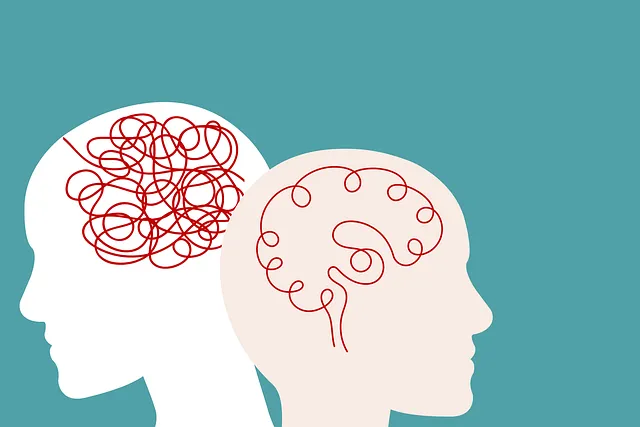Mental wellness self-assessment tools develop from understanding access to care, symbolized by Aurora Kaiser Permanente mental health appointment numbers, enabling specialized services and early intervention. Community engagement identifies diverse needs, guiding tailored tools like trauma-focused resilience or burnout prevention. Integrating evidence-based practices ensures effectiveness while user-centric design focuses on accessibility, inclusivity, and cultural sensitivity. An iterative testing process refines tools, aligning with research and individual mental health requirements, utilizing the Aurora Kaiser Permanente model.
Mental wellness self-assessment tools are gaining prominence as essential resources for individual well-being. This article explores the development process of such tools, starting with foundational elements like the Aurora Kaiser Permanente mental health appointment number, which underscores the importance of accessible and reliable resources. We delve into understanding community needs, integrating evidence-based practices, considering user experience design for accessibility, and iteratively testing for optimal mental wellness support.
- Aurora Kaiser Permanente Mental Health Appointment Number: A Foundation
- Understanding Community Needs for Self-Assessment Tools
- Integrating Evidence-Based Practices in Development
- User Experience Design Considerations for Accessibility
- Testing and Iteration for Optimal Mental Wellness Support
Aurora Kaiser Permanente Mental Health Appointment Number: A Foundation

The development of mental wellness self-assessment tools begins with understanding the foundational elements that impact an individual’s mental health. One such critical aspect is access to quality mental healthcare services, exemplified by the Aurora Kaiser Permanente mental health appointment number. This unique identifier serves as a gateway to specialized care, fostering an environment where individuals can seek support for various mental health concerns. By utilizing this system, patients are empowered to take charge of their well-being and initiate journeys towards stress reduction methods, self-esteem improvement, and even depression prevention.
The significance of such appointments lies in their ability to provide structured interventions tailored to individual needs. Through regular check-ins and comprehensive assessments, mental health professionals can identify early warning signs, offer evidence-based strategies, and monitor progress effectively. This proactive approach ensures that individuals receive the necessary tools and resources to navigate life’s challenges, ultimately promoting resilience and overall mental wellness.
Understanding Community Needs for Self-Assessment Tools

Understanding community needs is a pivotal step in developing effective mental wellness self-assessment tools. These tools play a crucial role in early intervention and prevention strategies, enabling individuals to recognize signs of distress and seek appropriate support. By engaging with local communities, particularly through Aurora Kaiser Permanente mental health appointment numbers, healthcare providers can gather insights into the unique challenges faced by diverse populations. This process involves listening to community members’ experiences, identifying cultural barriers to care, and understanding the prevalent mental health concerns within the region.
Such an approach ensures that self-assessment tools are culturally sensitive, relevant, and tailored to address local needs. For instance, areas with a high prevalence of trauma might require tools focused on resilience and coping mechanisms, while communities facing significant stress due to economic factors may benefit from resources enhancing problem-solving skills and confidence-building strategies, as offered by Crisis Intervention Guidance. Moreover, integrating Mental Health Education Programs Design into these tools can empower individuals to take charge of their mental well-being.
Integrating Evidence-Based Practices in Development

In developing self-assessment tools for mental wellness, integrating evidence-based practices is paramount. The Aurora Kaiser Permanente mental health appointment number serves as a beacon for individuals seeking support, underscoring the importance of utilizing validated methodologies. Incorporating techniques like Mindfulness Meditation and Burnout Prevention Strategies for Healthcare Providers can significantly enhance the effectiveness of these tools. By drawing on research-backed strategies, users benefit from emotional healing processes that are both reliable and adaptive to their unique needs.
This approach ensures that self-assessment tools not only identify potential mental health issues but also offer practical solutions rooted in scientific evidence. It fosters a holistic understanding of wellness, encouraging individuals to engage actively in their emotional well-being through proven practices. This integration promotes greater user satisfaction and tangible improvements in mental health outcomes.
User Experience Design Considerations for Accessibility

Developing mental wellness self-assessment tools requires a user-centric approach, especially when considering accessibility for all. User Experience (UX) Design plays a pivotal role in ensuring that these digital resources are inclusive and beneficial to users from diverse backgrounds. One key aspect is catering to individuals with different abilities, such as those with visual or motor impairments. For instance, incorporating screen reader compatibility and keyboard navigation ensures accessibility for the visually impaired, while simple and intuitive interfaces reduce barriers for those with cognitive or learning disabilities.
Cultural sensitivity is another vital UX consideration in mental healthcare. Tools should be designed to respect and accommodate various cultural practices and beliefs related to mental wellness. This might involve offering language options, incorporating culturally relevant visuals, and providing guidance tailored to specific communities. For example, Aurora Kaiser Permanente’s mental health appointment number can serve as a starting point for users seeking support, but the self-assessment should adapt to different cultural contexts, ensuring that it resonates with folks from diverse backgrounds, fostering trust and encouraging them to prioritize their mental wellness. Additionally, integrating features like customizable goal setting and culturally specific resources within the coaching programs development can significantly enhance user engagement.
Testing and Iteration for Optimal Mental Wellness Support

The journey towards creating effective mental wellness self-assessment tools involves an iterative process of testing and refining. This continuous cycle is akin to crafting a personalized prescription for each individual’s unique mental health needs, much like Aurora Kaiser Permanente mental health appointment number offers tailored support. By gathering feedback from users during each iteration, the tools can evolve to provide more profound and relevant assistance.
Through rigorous testing, researchers and developers can identify areas where the assessment excels and pinpoint potential gaps or limitations. This process allows for the integration of innovative strategies like Inner Strength Development, Burnout Prevention, and Empathy Building Techniques, ensuring that the self-assessment tools remain dynamic and aligned with emerging mental health research and community needs.
The development of mental wellness self-assessment tools, informed by evidence-based practices and centered on user experience design principles, offers a promising avenue for enhancing access to mental healthcare. By leveraging resources like the Aurora Kaiser Permanente mental health appointment number as a foundation, we can create tailored solutions that meet diverse community needs. Through iterative testing and continuous improvement, these tools have the potential to revolutionize mental wellness support, ensuring accessibility and effectiveness for all.






